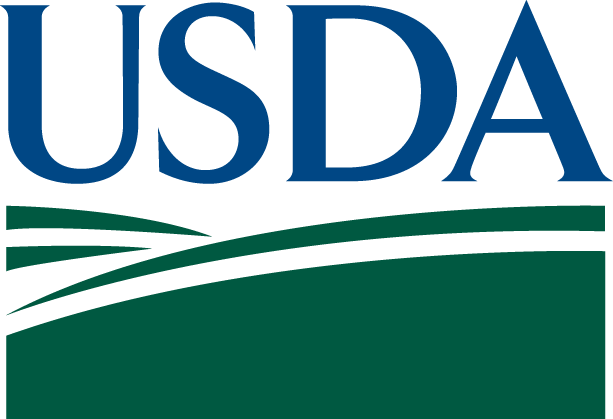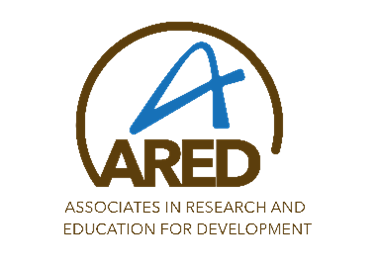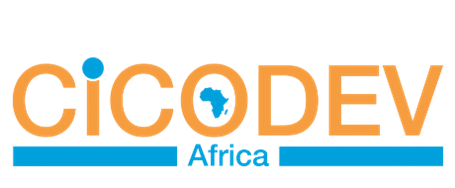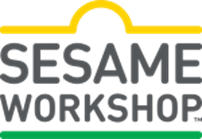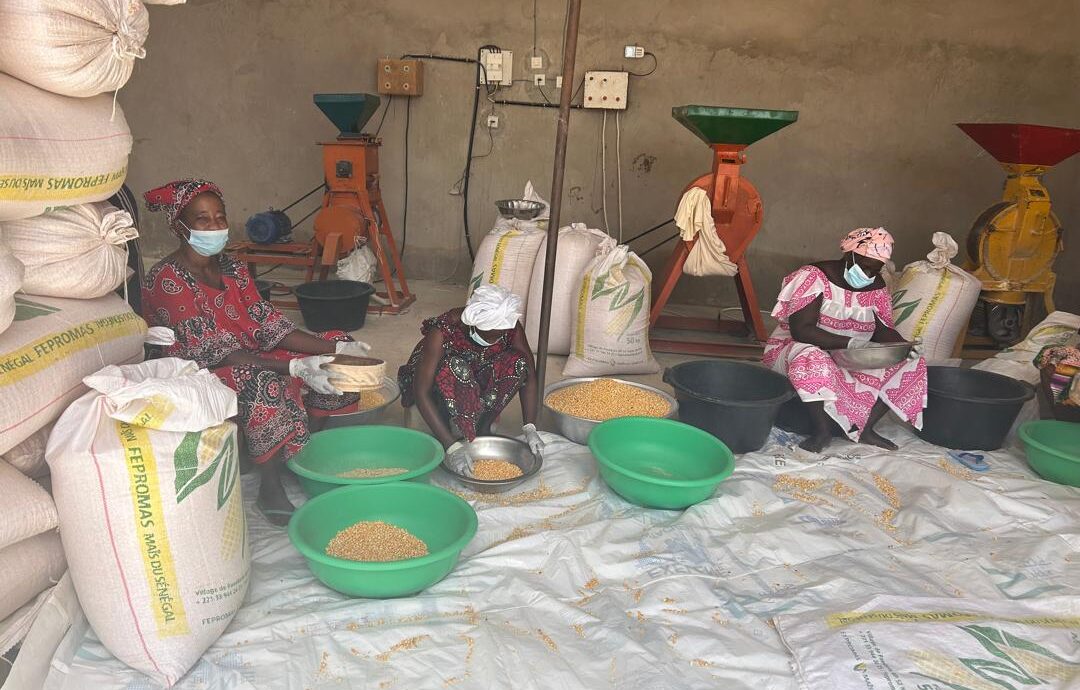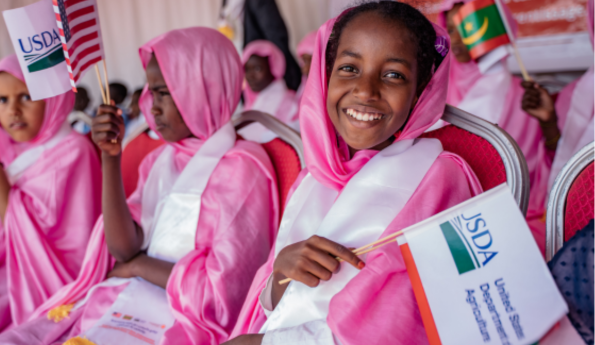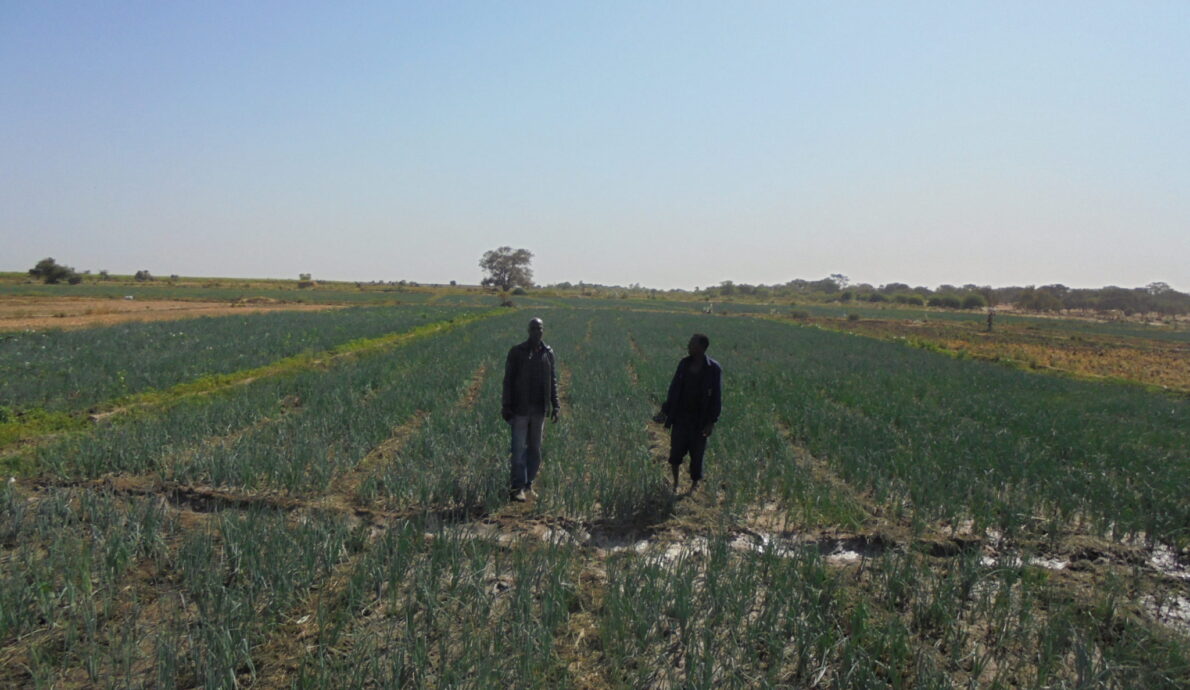McGovern-Dole International Food for Education and Child Nutrition Program
Senegalese schools continue to face poor dropout rates
Senegal’s population in 2022 was 17,738,795 with 52.1 percent of young people under the age of 20. The country’s economy is based mainly on agriculture, and poverty particularly affects the rural population, where more than half (53.6 percent) live below the poverty line and 17 percent experience food insecurity. Reversing these trends remains an ongoing challenge for the Senegalese authorities.
The Senegalese Ministry of National Education has mandated that all children seven to 16 years old must go to school. While the gross enrollment rate was 98.8 percent in 2019 for first grade, only slightly more than 50 percent of those who started will complete the five-year primary school cycle (until sixth grade). Of those who do not drop out, only 62 percent passed the standardized exam (CFEE) to enter middle school in 2021, with rates that are similar for boys and girls.
The McGovern-Dole Food for Education program in Senegal, called Sukaabe Janngo (Children of Tomorrow), strives to improve learning outcomes for children in preschool and elementary schools in mainly rural areas.
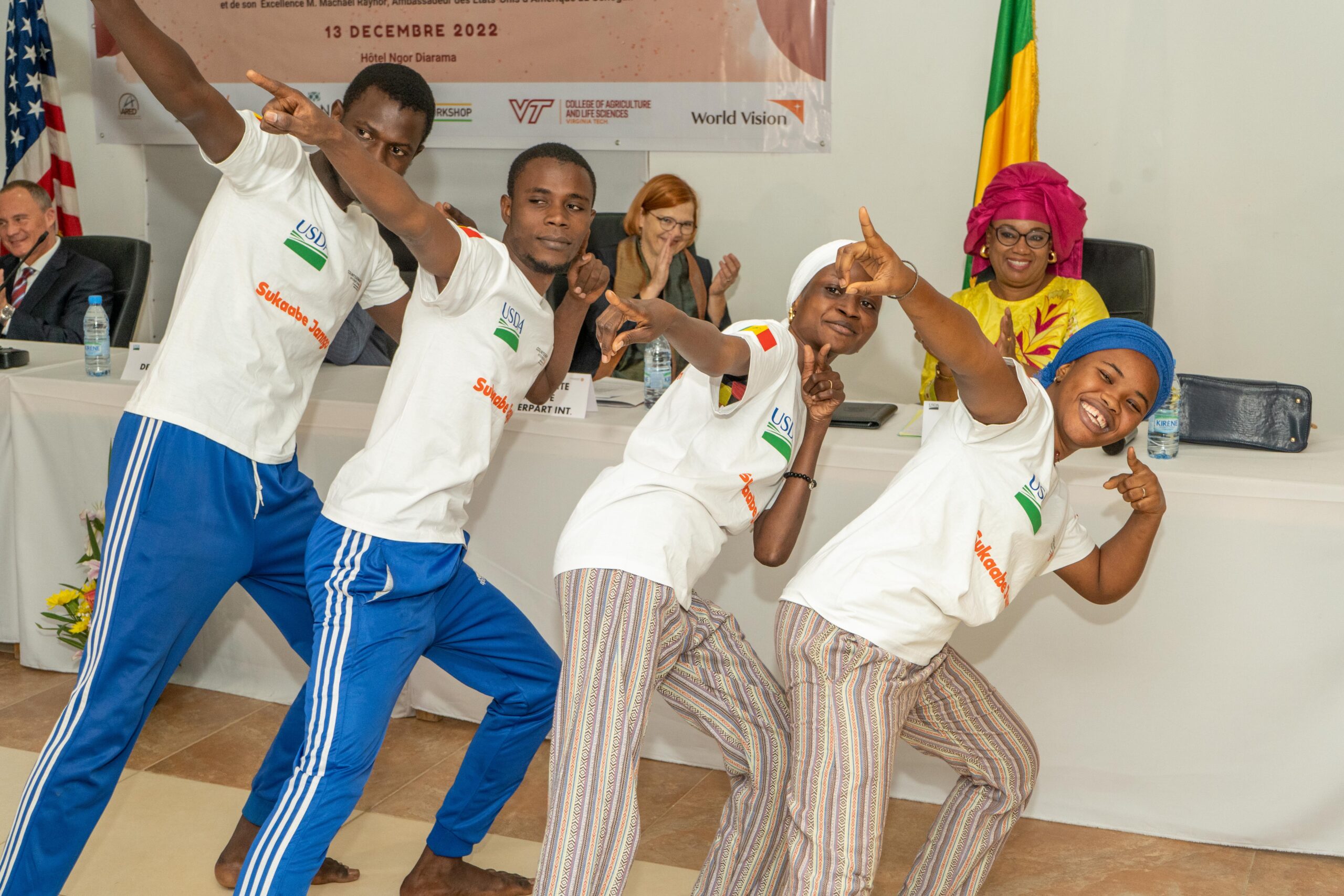
A performance during the Sukaabe Janngo II launch in December 2022.
Improving children’s academic performance through food
Established in Senegal since 2001, Counterpart completed the first phase of a USDA McGovern-Dole International Food for Education and Child Nutrition school feeding and nutrition project in the Saint Louis region in September 2018 with a second phase that started in 2019 and will end in September 2023. USDA awarded a new McGovern-Dole program, Sukaabe Janngo II, to Counterpart and its consortium of partners in the Casamance region. The new project continues to build stronger systems to ensure that future children will benefit from a wholistic set of activities that support healthy families and students with improved academic performance.
In the Kolda and Sédhiou regions of the Casamance, 79,292 children, their families and 285 school communities will be impacted. Counterpart focuses on strengthening systems to consolidate the long-term gains of U.S. government investment, to scale up school feeding, and to contribute to the Ministry of National Education’s goals of access, equity, and quality in the school system. Sustainability is at the heart of this school feeding project. Counterpart is also assisting the ministry to review and design a national school feeding program rooted in local food sourcing and supporting small-scale farmers.
The aim of Sukaabe Janngo II is to improve school-age children’s reading skills, increase the use of improved health, nutrition, and WASH practices, and improve school nutrition through the efficient purchase of local food products. Strategically, this involves:
- Ensuring the professional development of teachers and principals, improving the quality of reading materials, and creating a tutoring program for students;
- Increasing school attendance by providing nutritious daily school meals in the 285 preschool and elementary school targeted by the project
- Building or rehabilitating storerooms and cooking areas, and increasing access to drinking water and sanitation
- Improving health, nutrition, and WASH practices by providing access to deworming medication, cooking demonstrations, behavior change campaigns, and nutrition/health/WASH knowledge, as well as safe and healthy food preparation and storage trainings
- Building the capacity of government officials, in particular school management committees, the School Canteen Division and municipalities, to design, maintain and monitor school feeding programs
- Increasing local food production capacity and creating economic links between producers and school canteens
- Increasing the commitment of local/grassroots organizations, community members and private sector players to establish a sustainable school feeding system
Building resilient food systems that last
The project’s impact is more than the indicators, it is about reinforcing systems and building capacity that lasts long after the project has ended.
- Systems at the school level for canteen management and leadership
- Enhanced learning outcomes for students along with more engaged and capable teachers
- Motivated parents and school communities that support student success
- Improved behavior and practices by students, parents, and community members around health, nutrition and WASH
- Improved school infrastructure
- Reinforced government agents, especially at deconcentrated and decentralized levels
- Systems which link climate-smart food production with school feeding and family well-being



